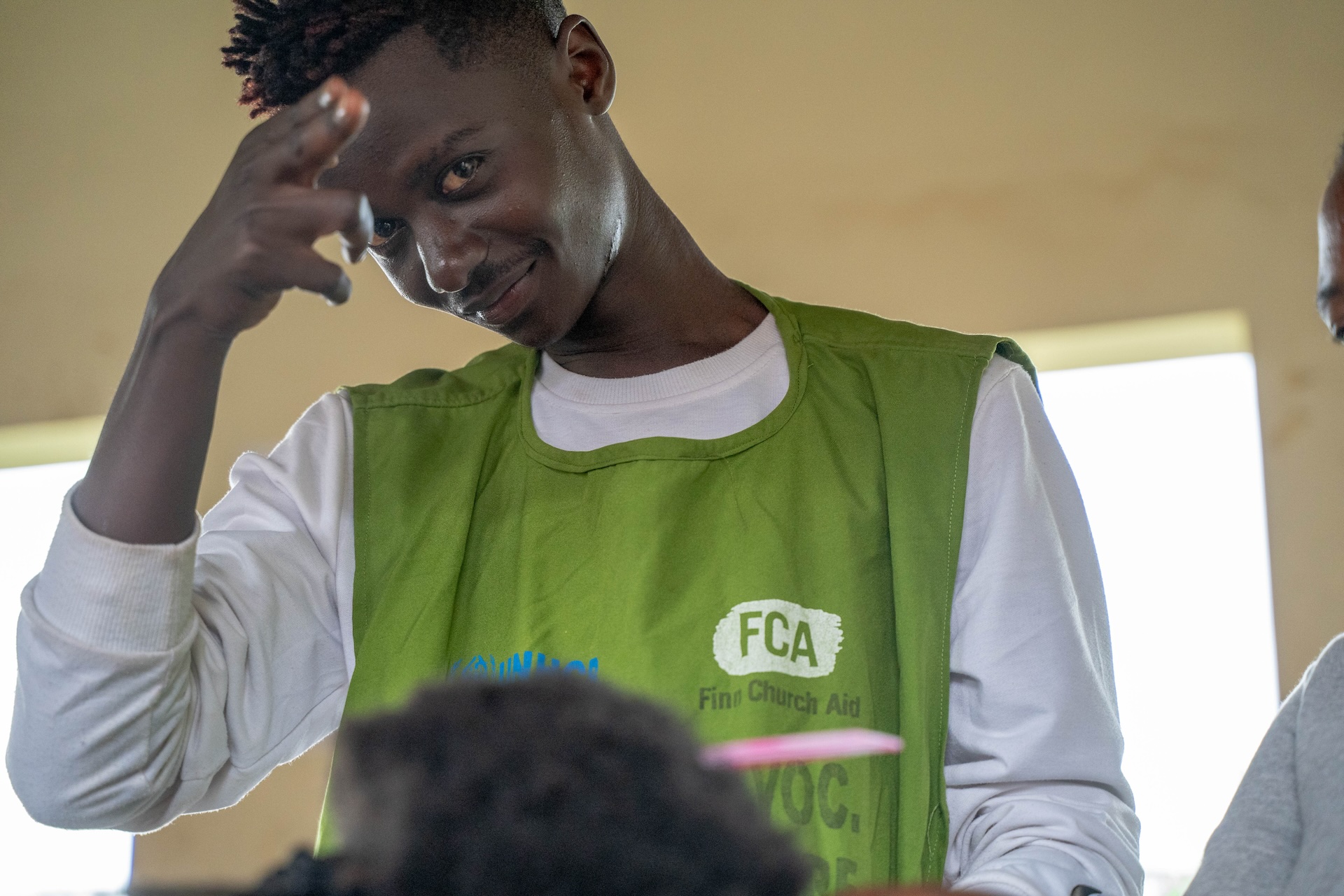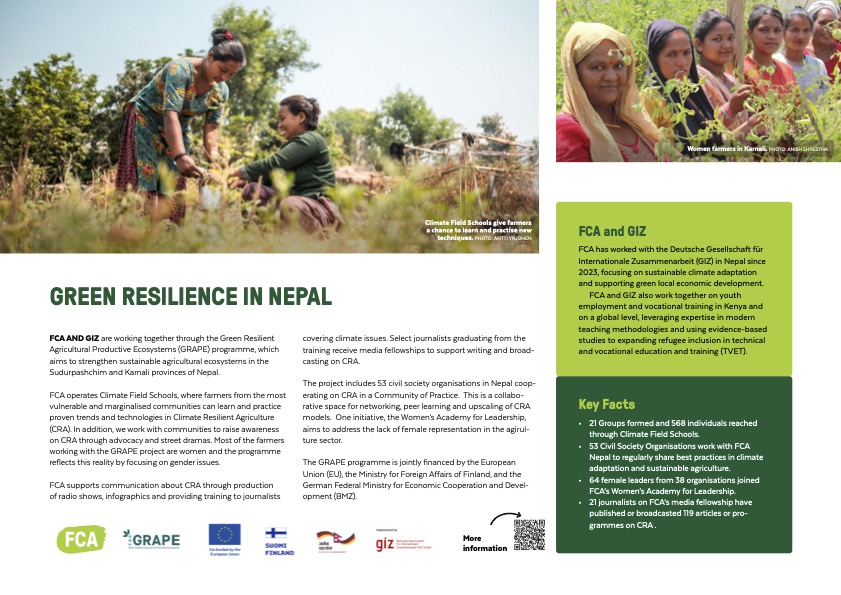FCA and GIZ – green resilience in Nepal, youth training in Kenya.
FCA AND GIZ are working together through the Green Resilient Agricultural Productive Ecosystems (GRAPE) programme, which aims to strengthen sustainable agricultural ecosystems in the Sudurpashchim and Karnali provinces of Nepal.
As part of the project, FCA operates Climate Field Schools, where farmers from the most vulnerable and marginalised communities can learn and practice proven trends and technologies in Climate Resilient Agriculture (CRA). Most farmers working with the project are women. In addition, we work with communities to raise awareness on CRA through advocacy and street dramas, focusing on women and gender transformative approaches.
FCA supports communication about CRA through production of radio shows and infographics as well as providing training to journalists covering climate issues. Select journalists graduating from FCA training then received media fellowships to support writing and broadcasting on CRA.
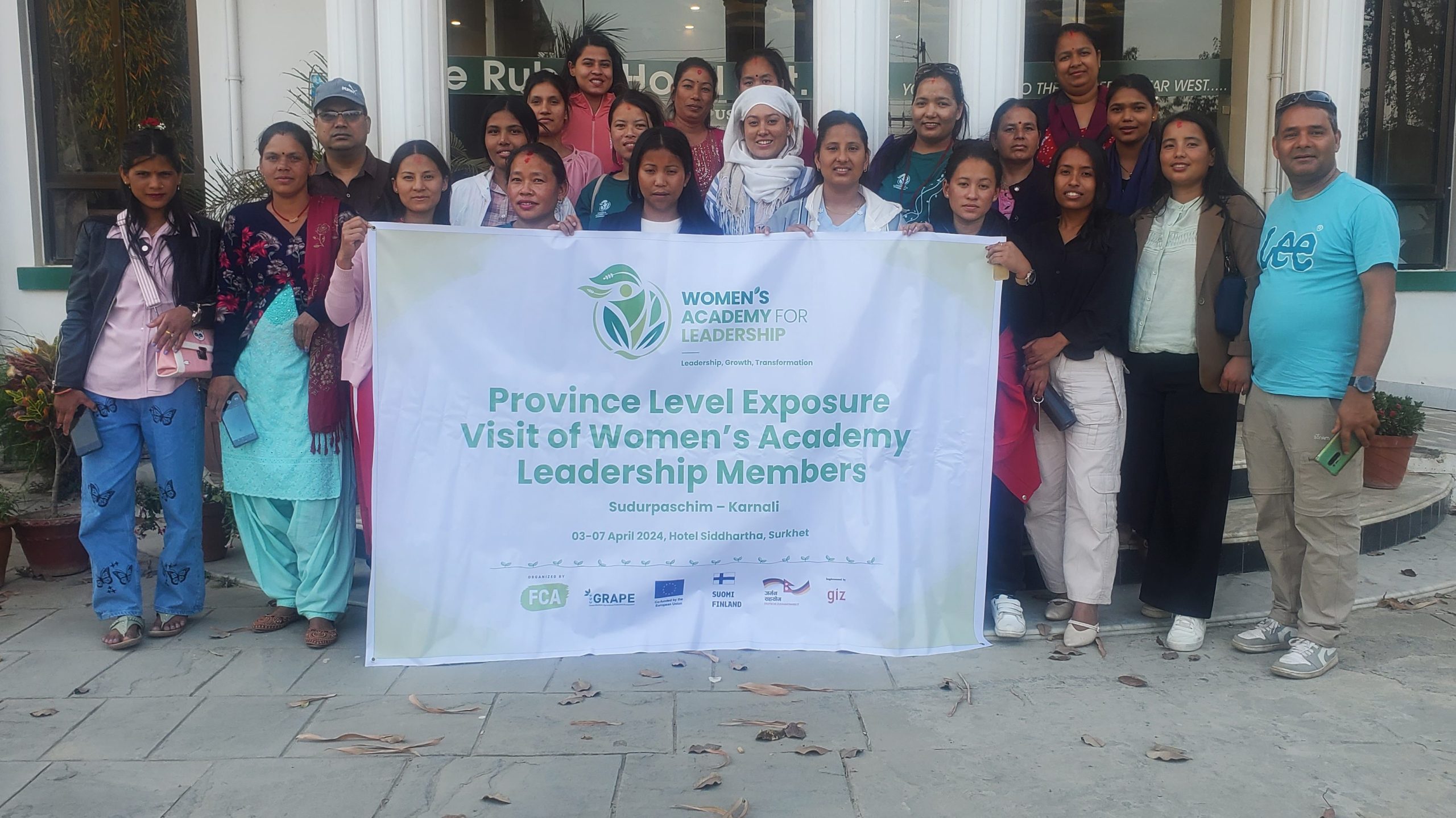
The project includes 53 civil society organisations in Nepal who cooperative on CRA in a Community of Practice. This is a collaborative space for networking, peer learning and upscaling of CRA models. One initiative, the Women’s Academy for Leadership, aims to address the lack of female representation in the agriculture sector.
In the next iteration of the project, activities will focus on gender transformative approaches, addressing the specific needs of women in agriculture, and the disproportionate effect of the climate crisis on women
plus aspects of intersectionality.
The GRAPE programme is jointly financed by the European Union (EU), the Ministry for Foreign Affairs of Finland, and the German Federal Ministry for Economic Cooperation and Development (BMZ).
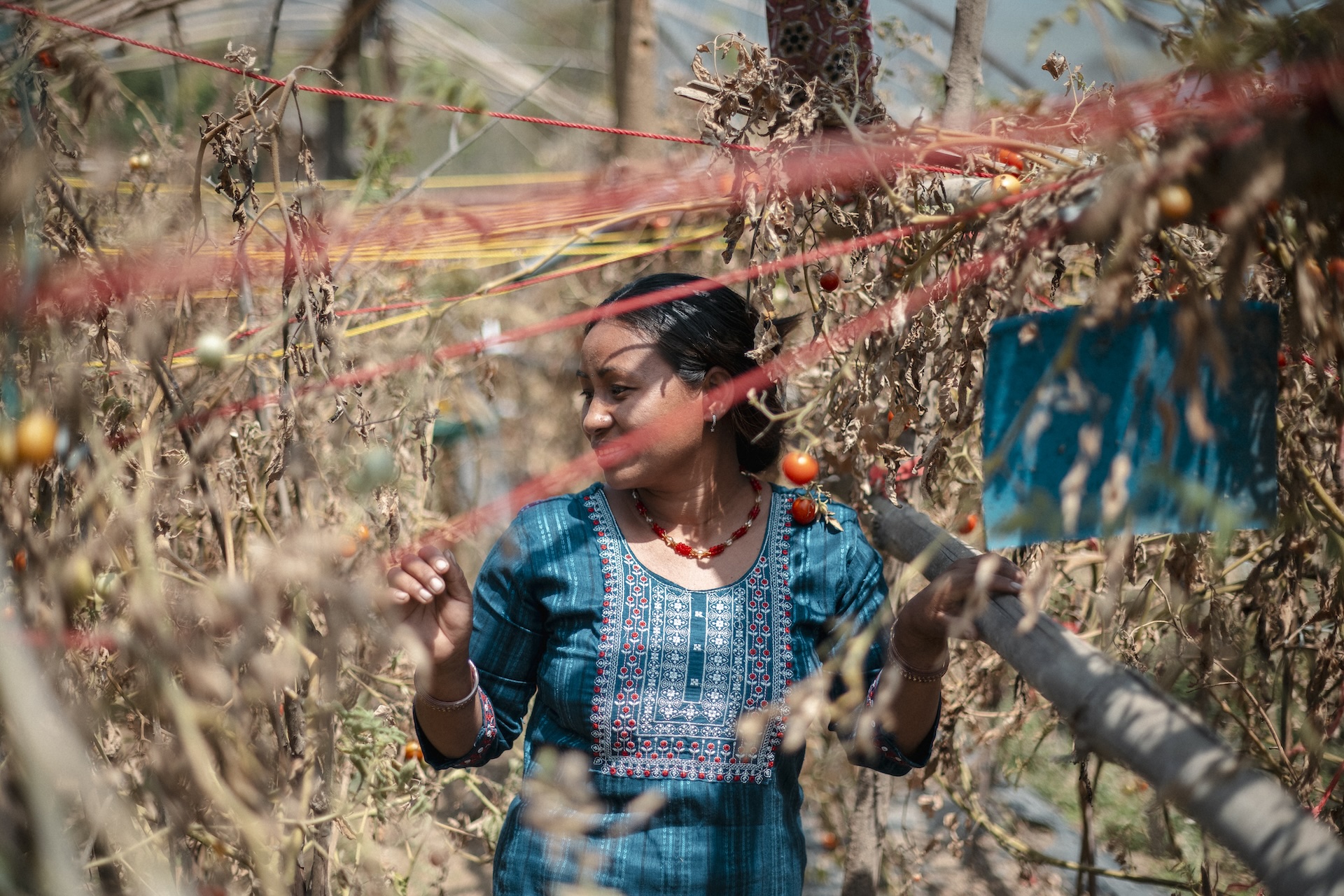
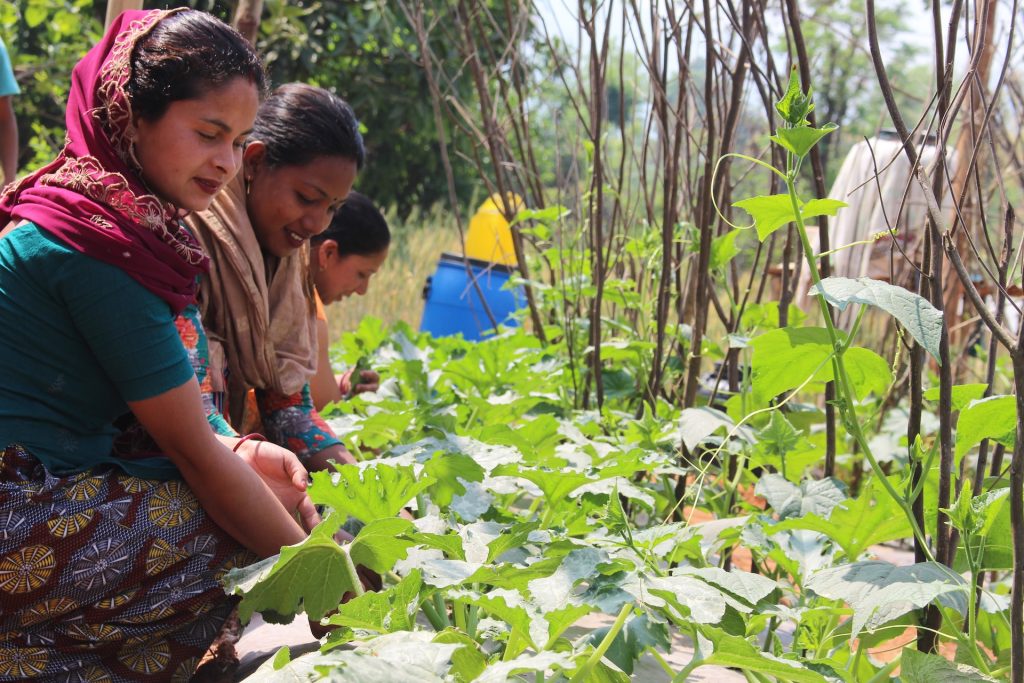
Key Facts
- 21 Groups formed and 568 individuals reached through Climate Field Schools.
- 53 Civil Society Organisations work with FCA Nepal to regularly share best practices in climate adaptation and sustainable agriculture.
- 64 female leaders from 38 organisations joined FCA’s Women’s Academy for Leadership.
- 21 journalists on FCA’s media fellowship have published or broadcasted 119 articles or programmes on CRA .
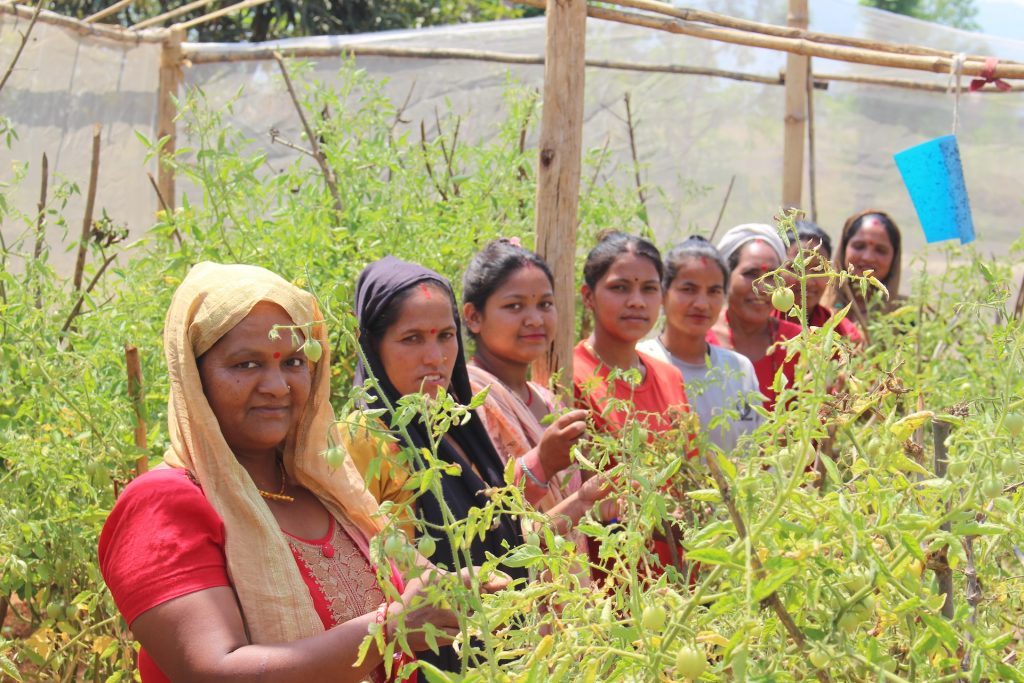
FCA and GIZ
FCA has worked with the Deutsche Gesellschaft für Internationale Zusammenarbeit (GIZ) in Nepal since 2023, focusing on sustainable climate adaptation and supporting green local economic development.
FCA and GIZ also work together in Kenya and on a global level with other partners, leveraging expertise in modern teaching methodologies and using evidence-based studies to expanding refugee inclusion in technical and vocational education and training (TVET).
Technical and vocational education in Kenya
IN KENYA, FCA, GIZ and the TAMK University of Applied Sciences in Tampere are collaborating on a project to foster collaborative partnerships between Finnish educational institutions and Kenyan actors working in the area of technical and vocational education and training (TVET).
The project aims to leverage Finnish expertise in modern teaching methodologies, individualised learning and competency-based education to elevate the quality and effectiveness of TVET in Kenya.
Improved experiences in vocational education will lead to improved learning, as well as enhacing employability among Kenyan youth. It’s hoped that the project will eventually facilitate a sustainable model of quality technical and vocational education that can be replicated aross various contexts.
Both FCA and GIZ also work as part of a wider global steering committee, with UNHCR and ILO, dedicated to expanding refugee inclusion in technical and vocational education and training (TVET).
